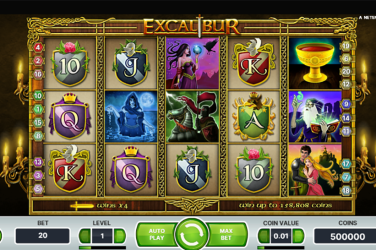
Online casinos have become a massive part of the gambling landscape, offering players the convenience of playing from anywhere at any time. However, this accessibility comes with concerns, particularly regarding the fairness of these platforms. Many players wonder: Are online casinos rigged?
This suspicion isn’t unfounded, as the anonymity and technical nature of online gambling can lead to doubts about game integrity. This article aims to delve into the heart of these concerns, exploring how online casinos operate, the role of technology in ensuring fairness, and the regulatory frameworks that oversee these platforms.
By examining these aspects, we aim to provide a clearer picture of the legitimacy and fairness of online gambling.
Understanding Online Casino Operations
To address the question of whether online casinos are rigged, it’s crucial to understand how they operate. Central to the functionality of these digital gambling platforms is the use of Random Number Generators (RNGs).
RNGs are complex algorithms that generate random outcomes for each game, whether it’s a spin on a slot machine, a card dealt in blackjack, or the landing of the ball in roulette. The randomness provided by RNGs is what gives players a fair chance at winning and ensures that games are not predetermined.
However, the mere presence of RNGs isn’t enough to guarantee fairness. This is where licensing and regulatory bodies come into play. Online casinos are required to obtain licenses from gaming authorities, which vary by jurisdiction. These authorities set standards and rules that casinos must adhere to, including the fairness of their games.
Regular audits are conducted to ensure that the RNGs used by these casinos are functioning correctly and producing truly random outcomes. These audits are typically carried out by independent third-party companies, renowned for their expertise in this field.
Moreover, these regulatory bodies also ensure that online casinos practice responsible gaming, provide secure and encrypted connections for transactions, and protect user data. This comprehensive oversight is designed to create a safe and fair gaming environment for players.
Despite these measures, player skepticism remains.
Player Experiences and Concerns
While the technical and regulatory aspects may suggest a fair gaming environment, player experiences can sometimes tell a different story.
There are numerous accounts from players who feel they’ve been on the wrong end of a rigged game. These reports often include scenarios where losses seemed too consistent, wins were non-existent over extended periods, or certain patterns in games appeared manipulative.
It’s important to examine these concerns critically. One common theme is the misunderstanding of how probability works. In games of chance, streaks of losses or wins are not only possible; they’re statistically probable over time. However, when a player is on a losing streak, it can be easy to attribute this to the game being rigged rather than to normal statistical variance.
Another factor to consider is the psychological impact of gambling. Losses can feel more acute and memorable than wins, leading to a perception that the games are unfair. This cognitive bias, known as ‘loss aversion,’ can significantly influence players’ feelings about the fairness of a game.
Despite these psychological factors, it’s not to say that all player concerns are unfounded. There have been instances where online casinos have engaged in unethical practices. However, these are generally the exception rather than the norm, often involving unlicensed and unregulated platforms.
The Role of Regulation and Auditing
The integrity of online gambling largely hinges on the effectiveness of regulation and auditing. Regulatory bodies, such as the UK Gambling Commission, the Malta Gaming Authority, and others, play a crucial role in this ecosystem.
They not only issue licenses but also enforce standards that ensure fairness and transparency. These standards include regular audits of the casino’s operations, especially the fairness of their RNGs.
Auditing is typically conducted by reputable third-party organizations specializing in gaming systems and technology. These auditors test the RNG algorithms to ensure their outcomes are random and unbiased.
They also review the casino’s operational practices, including payout rates, to ensure compliance with regulatory standards. If a casino fails to meet these standards, it risks fines, license revocation, and other penalties.
While regulation and auditing are robust, they are not infallible. There have been instances where licensed casinos were found to be violating regulations. However, these cases are relatively rare and often result from the regulatory bodies’ continuous efforts to refine and improve their oversight processes.
Provably Fair Games Utilizing Blockchain and Cryptocurrencies

In recent years, the advent of blockchain technology and cryptocurrencies has introduced a new paradigm in online gambling: provably fair gaming. This concept uses cryptographic techniques to ensure that the outcome of a game is fair and transparent. But how foolproof is this system? Can these games be rigged, or do they offer a perfect solution to the concerns of game fairness?
How Provably Fair Gaming Works
Provably fair gaming hinges on the principles of blockchain technology, which is inherently transparent and immutable. When a bet is placed in a provably fair game, the casino generates a cryptographic hash of the outcome.
This hash is sent to the player before they play. After the game, the player can use this hash to verify if the outcome was indeed random and fair. This process ensures that the casino cannot manipulate the outcome after the bet is placed.
The Role of Cryptocurrencies
Cryptocurrencies like Bitcoin play a significant role in provably fair gaming. They not only facilitate fast and secure transactions but also complement the transparency of the blockchain. Transactions made with cryptocurrencies on gaming platforms are recorded on the blockchain, providing an auditable trail that ensures the casino’s accountability.
Can Provably Fair Games Be Rigged?
While provably fair games offer a high degree of transparency and fairness, claiming they are entirely foolproof would be an overstatement. The integrity of these games largely depends on the honesty and reliability of the casino offering them.
If a casino wanted to manipulate the game, they could potentially do so by providing a false hash. However, this kind of manipulation is easily detectable and would quickly damage the casino’s reputation.
Another point to consider is the security of the underlying technology. While blockchain technology is known for its security, vulnerabilities can still exist, especially in the implementation of the provably fair algorithm.
It’s crucial for players to choose casinos that have a strong track record and are transparent about their provably fair gaming processes.
Conclusion
While concerns about the fairness of online casinos are understandable, the evidence suggests that most licensed and regulated online casinos operate fairly.
The use of RNGs, along with strict regulatory oversight and independent auditing, provides a strong framework to ensure game integrity. However, players should remain vigilant, especially when playing on platforms that lack proper licensing and regulation.
For those concerned about fairness, the best practice is to play on casinos that are licensed by reputable authorities and have a good track record. Always remember to gamble responsibly, understanding that gambling is a form of entertainment, not a guaranteed way to make money.
Provably fair games are a groundbreaking innovation, offering a higher degree of fairness and transparency. They are not completely foolproof, but they represent a significant advancement in addressing the concerns of game rigging and fairness in the online gambling industry.
The world of online gambling is not without its flaws, but for the most part, it strives to provide a fair and enjoyable experience for players around the globe.
[wpforo item=”topic” slug=”rigged-online-casinos”]

As a co-founder and dedicated writer, Mika’s objective is clear: to produce captivating and knowledgeable content that appeals to both experienced gamblers and those just starting out. Join Mika as he delves deep into the exhilarating world of online gaming, uncovering the strategies and insights that pave the way to those exhilarating jackpot victories!



















